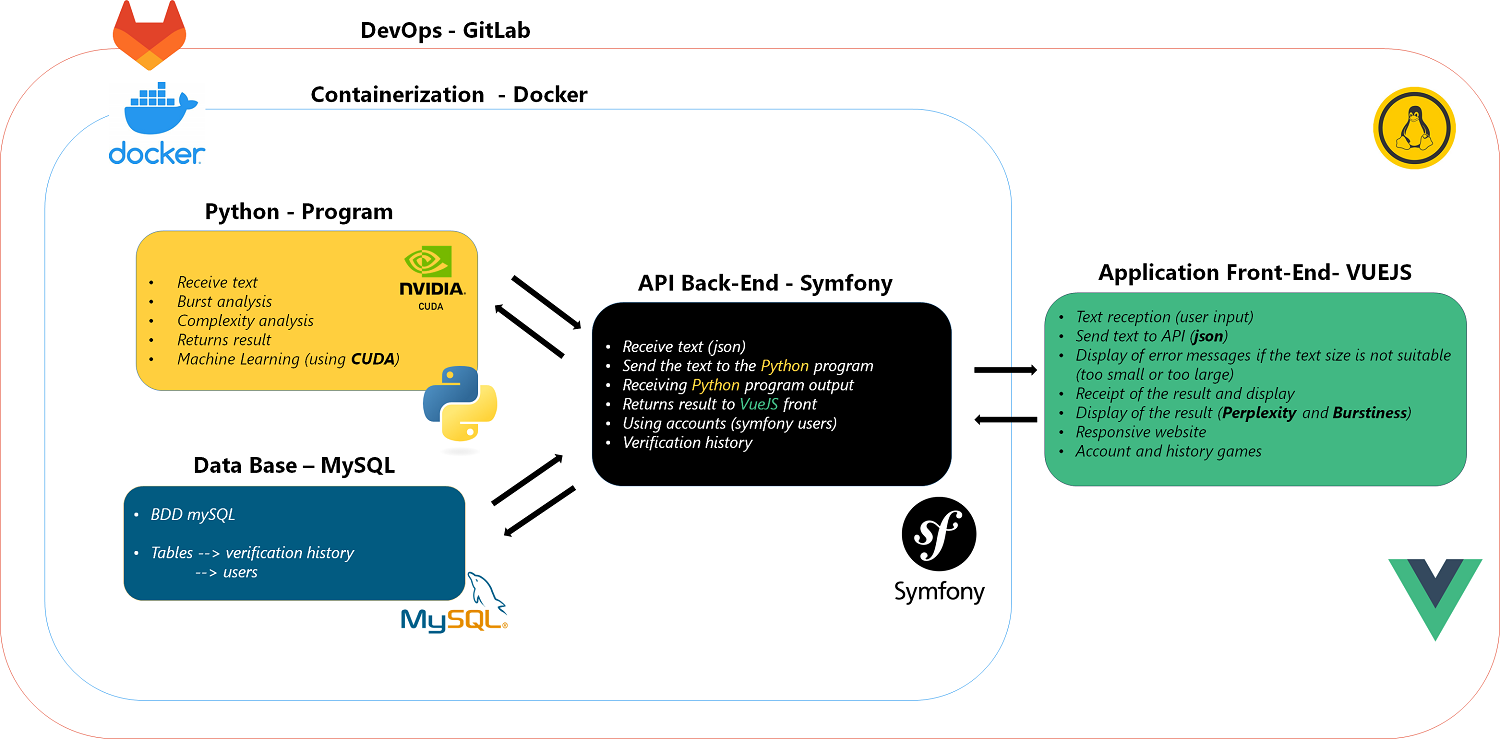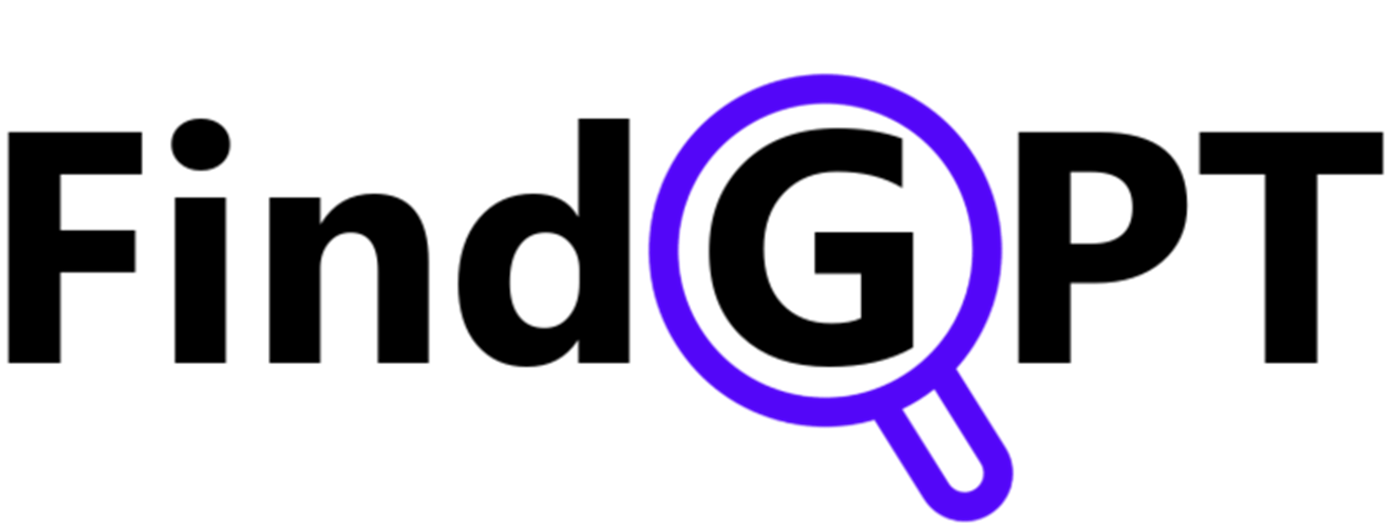
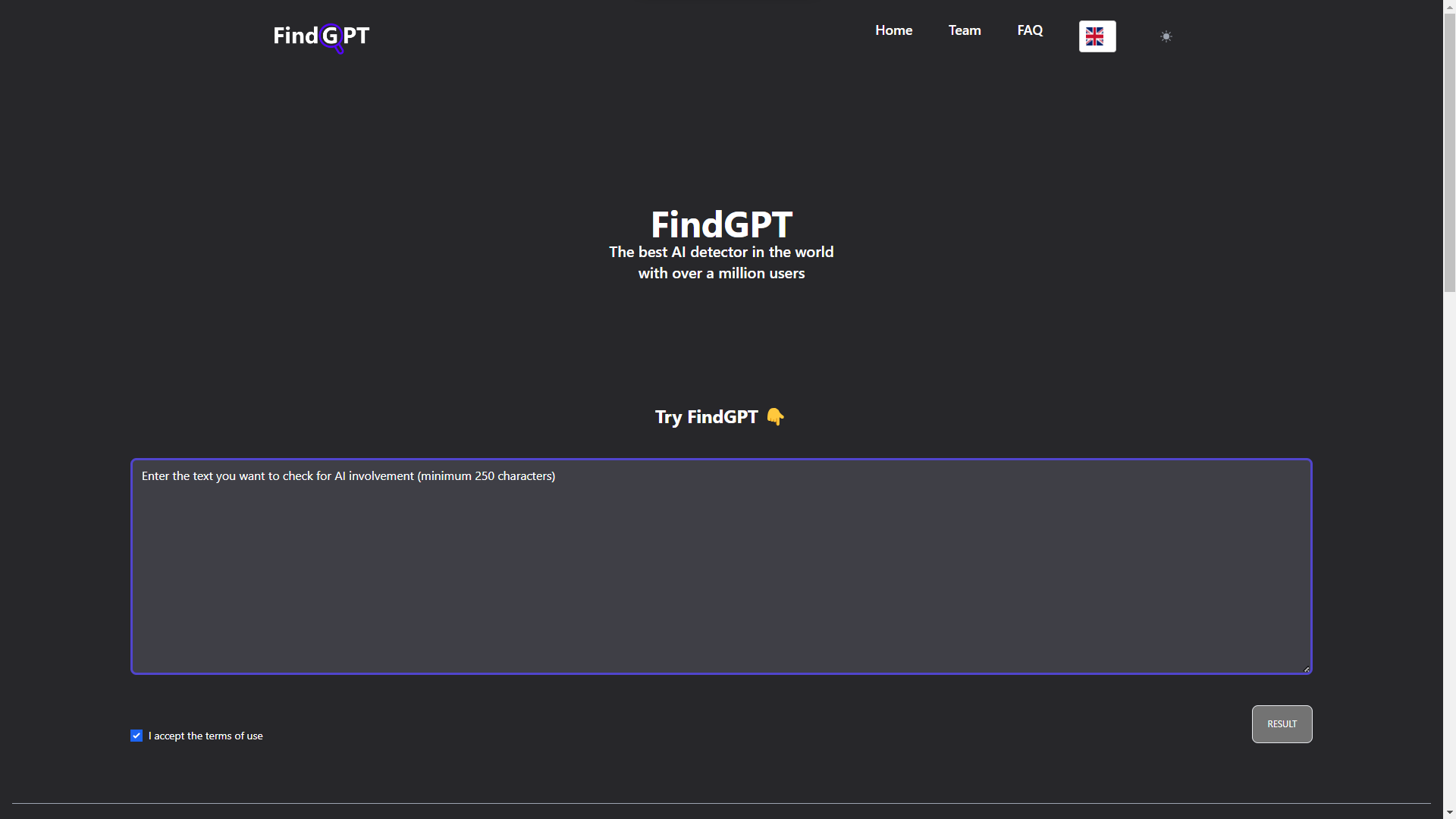
FindGPT Presentation
The FindGPT project, developed in partnership with CUNY New York and RTIT Consulting, aims to assess whether a text is original or generated by artificial intelligence, in order to prevent plagiarism and protect intellectual property.
AI analysis is based on two key measures: “perplexity” and “burstiness”. Perplexity measures the randomness of a text by assessing the ability of software such as ChatGPT to predict that text. High perplexity indicates that the text was probably written by humans, as the language model has difficulty predicting the next words in a text sequence. On the other hand, low perplexity suggests that the text was generated by an AI.
Burstiness quantifies the tendency of a word to appear non-uniformly in the text. It corresponds to the maximum perplexity value for each line of text. The application analyzes the text sentence by sentence to detect peaks in perplexity, which may indicate the presence of AI. By combining these measurements, it is possible to determine the probability of a text being written by a human or an AI.
This makes it possible to prevent plagiarism by identifying AI-generated texts, and to protect intellectual property by monitoring original content on the Internet. FindGPT, offers an anti-plagiarism tool and a watch on intellectual and industrial property thanks to the analysis of the perplexity and burstiness of texts.
Text Analysis Resquest
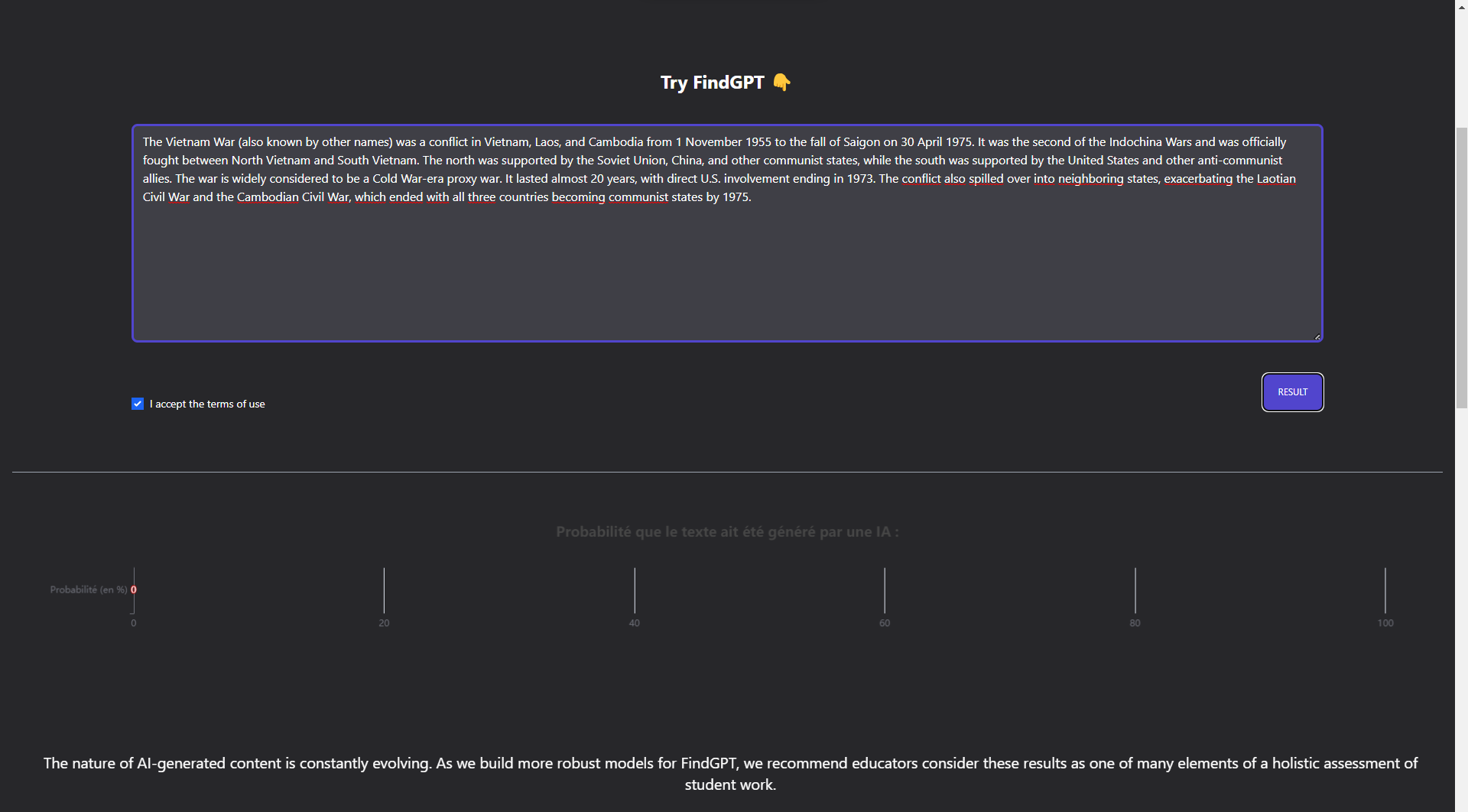
Text Analysis Result
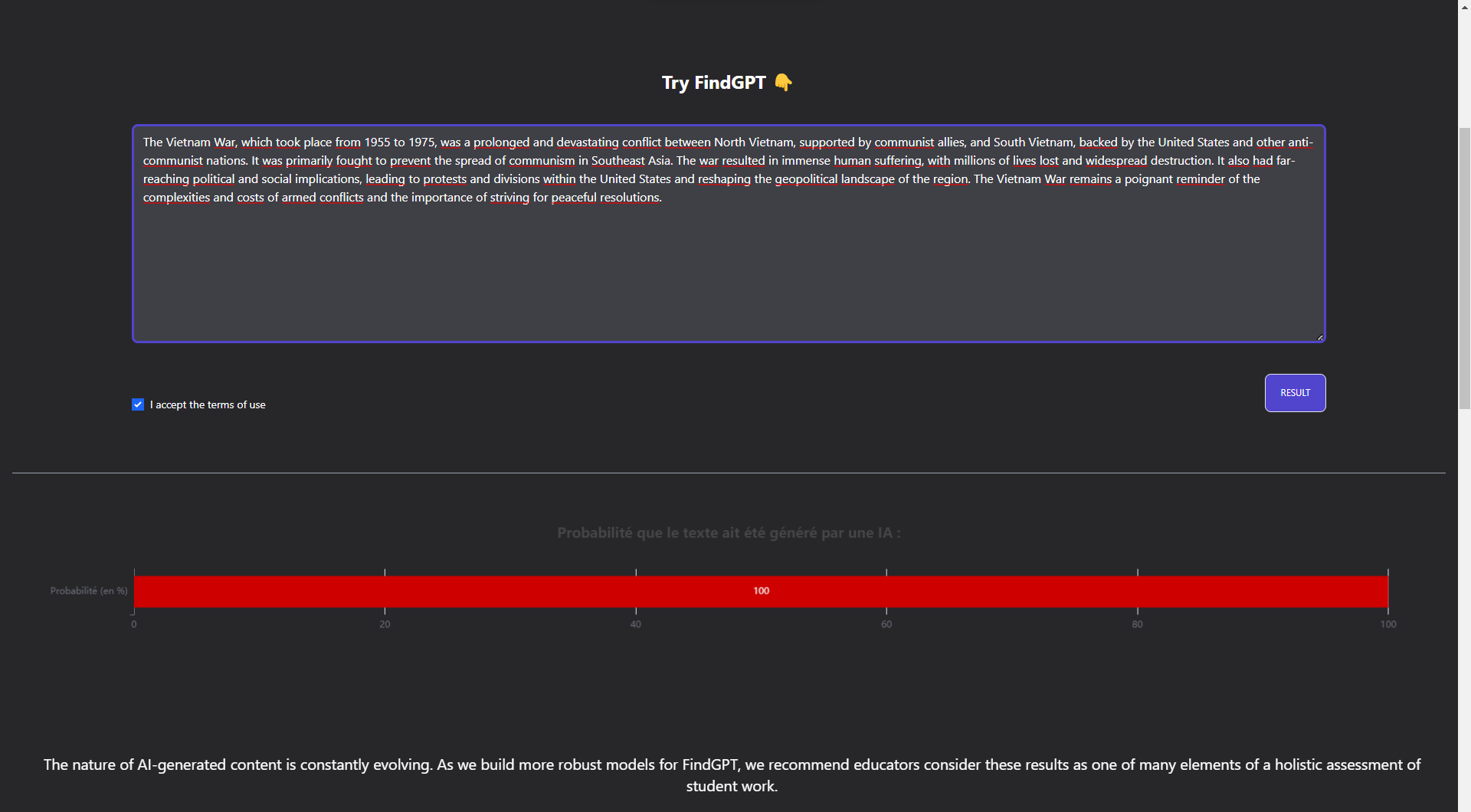
Global Architecture
